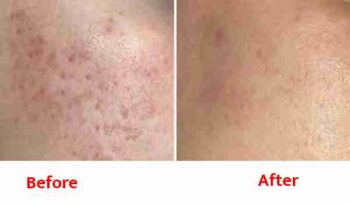Is Anodized Aluminium Safe? A Complete Guide to Its Benefits & Risks
If you use aluminum cookware, you’ve probably heard about anodized aluminium. But is it really safer than regular aluminum? Should you switch to anodized cookware for your kitchen?
In this blog, we’ll break down:
✅ What anodized aluminium is and how it’s made
✅ Is anodized aluminium safe for cooking?
✅ Benefits and drawbacks of anodized cookware
✅ How it compares to other cookware materials
✅ Should you buy anodized aluminium cookware?
By the end of this post, you’ll have all the information you need to make the best choice for your kitchen. Let’s dive in!
What is Anodized Aluminium?
Anodized aluminium is a type of aluminum that undergoes a special electrochemical process called anodization. This process creates a protective oxide layer on the surface of the metal, making it:
✅ More durable and scratch-resistant
✅ Non-reactive, so it won’t leach aluminum into food
✅ Naturally non-stick, requiring less oil for cooking
Anodized Aluminum vs. Regular Aluminium
| Feature | Regular Aluminium | Anodized Aluminium |
|---|---|---|
| Durability | Prone to scratches, dents | More durable and scratch-resistant |
| Reactivity | Reacts with acidic foods | Non-reactive |
| Non-Stick Properties | None | Natural non-stick surface |
| Leaching Risk | High (can mix with food) | Very low (protected by oxide layer) |
| Dishwasher Safe? | No | Mostly yes, but hand-wash recommended |
Does Anodized Aluminium Contain Harmful Chemicals?
No! The anodization process does not involve PTFE (Teflon) or PFOA. Unlike some traditional non-stick cookware, anodized aluminum does not release harmful fumes.
Is Anodized Aluminium Safe for Cooking?
Yes! The FDA (Food and Drug Administration) has classified anodized aluminum as safe for food contact.
A 2017 study in the Journal of Electrochemical Science found that anodized aluminum releases almost no aluminum into food, making it far safer than regular aluminum cookware.
Potential Safety Concerns
❌ If the coating gets scratched or damaged, the protective layer can weaken, exposing the aluminum underneath.
❌ Not all anodized cookware is the same—some brands add a non-stick coating (PTFE) on top, which can be a concern if overheated.
To stay safe, choose high-quality hard-anodized cookware and avoid using metal utensils that could scratch the surface.
Benefits of Anodized Aluminium Cookware
✅ Scratch & Corrosion-Resistant – More durable than regular aluminum.
✅ Non-Reactive – Safe for acidic foods like tomatoes and vinegar-based sauces.
✅ Excellent Heat Conduction – Heats up quickly and evenly.
✅ Naturally Non-Stick – Requires less oil for cooking.
✅ Lightweight – Easier to handle compared to cast iron.
✅ Low Maintenance – Easy to clean and resistant to stains.
Drawbacks of Anodized Aluminium Cookware
❌ More Expensive – Costs more than regular aluminum.
❌ Not Induction-Compatible – Most anodized aluminum cookware doesn’t work on induction stovetops.
❌ Can Wear Over Time – If the protective coating gets damaged, aluminum exposure may increase.
❌ Not as Durable as Stainless Steel or Cast Iron – Although tough, it won’t last as long as high-quality stainless steel or cast iron.
Anodized Aluminium vs. Other Cookware Options
| Cookware Type | Is It Safe? | Durability | Is It Non-Toxic? |
|---|---|---|---|
| Anodized Aluminium | ✅ Yes | ✅ Durable | ✅ Yes |
| Stainless Steel | ✅ Yes | ✅ Highly durable | ✅ Yes |
| Cast Iron | ✅ Yes, but requires seasoning | ✅ Very durable | ✅ Yes |
| Ceramic | ✅ Yes | ❌ Can chip easily | ✅ Yes |
| Teflon (PTFE Non-Stick) | ❌ Not safe at high heat | ❌ Wears out quickly | ❌ May release toxic fumes |
If you want a balance between safety, durability, and ease of use, anodized aluminum is one of the best choices.
Should You Buy Anodized Aluminium Cookware?
✅ Yes, if:
✔️ You want lightweight, durable cookware.
✔️ You cook acidic foods often.
✔️ You want a safer alternative to regular non-stick cookware.
❌ No, if:
✖️ You use an induction cooktop (unless it’s induction-compatible).
✖️ You want a lifetime cookware investment (stainless steel and cast iron last longer).
Final Verdict: Is Anodized Aluminium the Best Cookware?
✔️ Safer than regular aluminum – No leaching risk.
✔️ Great non-stick performance – Uses less oil.
✔️ Durable and lightweight – Ideal for everyday cooking.
❌ Not as long-lasting as stainless steel – Can wear down over time




